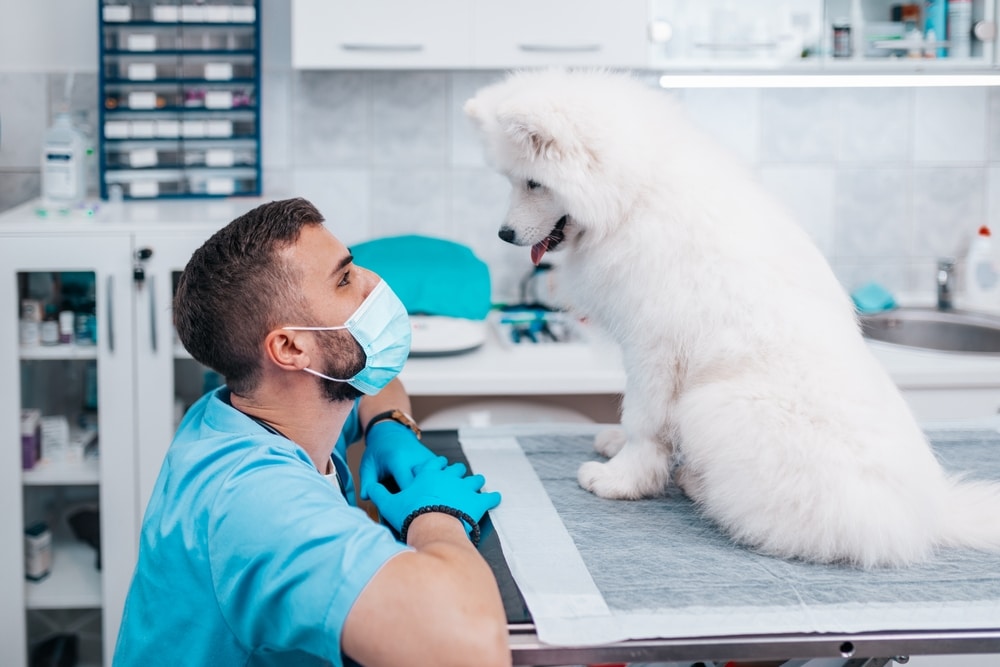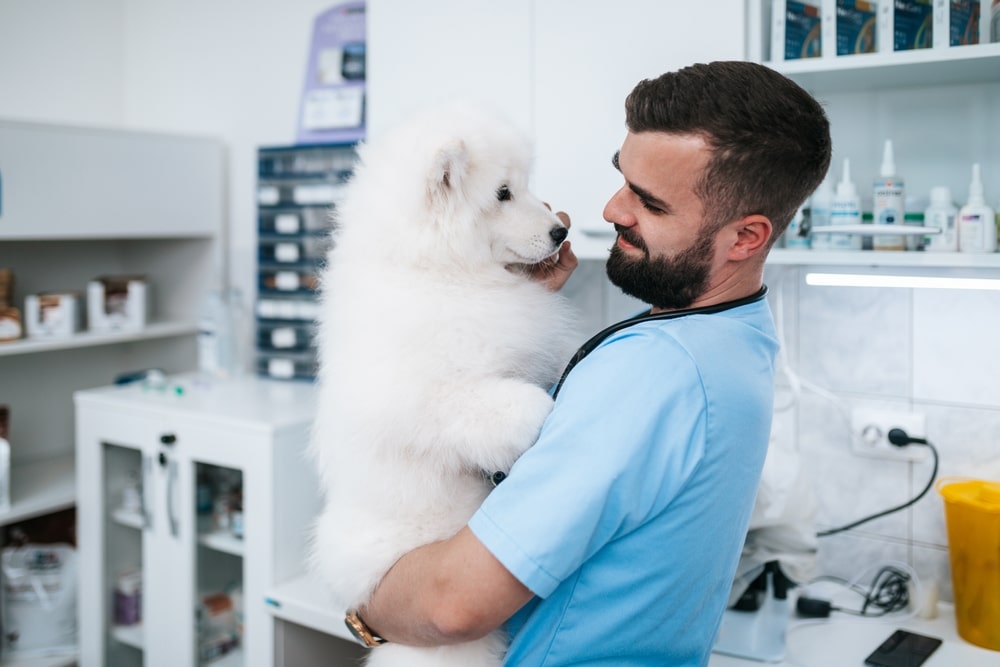We always recommend future owners do a little bit of reading about the breed they are interested in. Knowing more about a breed is always better. For example, enjoying spending lots of time on the couch doesn’t mix well with owning a Doberman. The same goes for a dog’s health and what to expect. For example, a Samoyed can be affected by a disease called Samoyed Hereditary Glomerulopathy, but what is that exactly?
Samoyed Hereditary Glomerulopathy is a Samoyed-specific disease that affects the kidneys’ ability to function properly. It causes symptoms such as anemia, weight loss, and blood in the urine. The disease is not curable, so instead, veterinarians focus on slowing down the disease’s progression.
What Is Samoyed Hereditary Glomerulopathy?

Before we can talk about the condition, I would like to tell you a bit about the kidney. As we all know, it is an organ. But what some may not know is that it helps filter metabolites from the blood. This, in a way, cleans the blood from unneeded stuff and throws them away from the body through the urine. If we look at a microscopic level, we will see that all the heavy lifting in filtration is done by the nephron.
The nephron has two parts, the glomerulus and the tubule. So, the condition happens when the nephron stops working properly and starts allowing protein and red blood cells to pass into the urine. The inability of the nephron to filter the right stuff and keep the good stuff inside, such as a protein called albumin, leads to the accumulation of water inside the body, a condition known as edema.
Also, Samoyed Hereditary Glomerulopathy is a condition that is specific to the Sammies, which means both parents need to have the specific gene in order for their progeny to get the disease.
If you are a human doctor or you, unfortunately, suffer from kidney disease, the most similar condition that humans have is called Hereditary Nephritis. See, dogs are not much different from us!
What Are The Symptoms Of Samoyed Hereditary Glomerulopathy?
Owners usually are very good at knowing when something is wrong with their white fur ball. The first thing every dog does when they are feeling under the weather is they either don’t want to play or they don’t want to eat their food. Other signs that could point to this specific condition are:
- Drinking water and urinating excessively
- Lethargy
- Anemia
- Vomiting
- Weight loss
- Blood in the urine
If you see these symptoms, contact your vet immediately.
How Do Vets Know What Is Wrong With My Samoyed?
A good vet will usually ask many questions before they do anything with your dog. Yes, we know this may seem annoying, but trust me when I tell you this usually solves around half of the mystery for us. The other half consists of a bunch of diagnostics tests, which may or may not involve poking your Samoyed and drawing some blood.
The blood is used for tests such as complete blood cell count and biochemistry parameters that could show us how the kidneys are working. The vet may also ask you to collect some urine samples, which can also give useful information.
Ultimately, they will use all this information to figure out what’s going on and decide what to do next.
How To Treat Samoyed Hereditary Glomerulopathy
Unfortunately, this condition is not curable. What vets do in these situations is to try and slow down its progression. Your Sammie will require specific therapy for the rest of its days. The vet will also recommend a special medical diet, which means you will need to get special food for your pup.
Lastly, you can prevent other dogs, and owners for that matter, from going through this if you neuter or spay your dog. In this vein, prior to getting a dog, we always recommend doing research to see how reputable breeders are since they should be doing the same thing.
In Conclusion
This is scary for both owners and Samoyed, but it is a condition that, if caught in time, can be easily managed with medication and a special diet regimen. If you are worried about your Sammie having Samoyed Hereditary Glomerulopathy, talk to your vet about genetic testing or talk to your breeder.
So, have you ever had a scare like this with your Samoyed? Let us know in the comments below, and let us know if they’re okay!
